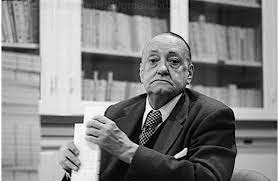
Havana, Sep 15.- Preparations to commemorate the 120th anniversary of the birth of Cuban intellectual Alejo Carpentier began with the creation of a council to celebrate the date in 2024.
At a press conference it was also agreed to celebrate the three decades since the establishment of the foundation that bears the name of the notable Cuban writer, considered by critics to be one of the fundamental writers of the 20th century in the Spanish language.
Carpentier notably influenced Latin American literature during its peak period and was one of the architects of poetic renewal in this region, in particular, through a style that incorporated various dimensions of the imagination with the purpose of recreating reality.
These elements contributed to its formation and use of “lo real maravilloso” (a reality with bits of fantasy embeded).
With the establishment of the commission to honor the excellent novelist, the range of activities with a broad agenda for an entire year opens, and dignifies the figure and legacy of who also served as a journalist and musicologist, an area in which he carried out important research.
However, he achieved fame thanks to his fruitful literary activity.
For a long time it was believed that Carpentier was born in this capital, but his birth certificate was found in Switzerland years after his death and showed that he was born in Lausanne, but the family moved to Havana due to his father's interest in Hispanic culture.
Carpentier was part of the Thirteen Protest together with the Minor Group in 1923. He met the Mexican muralist Diego Rivera, became involved in the Cuban avant-garde and became friends with its main figures.
Life in France enriched his world and introduced him to new literary techniques and expressive functions.
He made a journey of discovery of the American world, traveling through Haiti and Mexico, which he called “lo real maravilloso” and as a result of that experience, his work “The kingdom of this world” was born, published in Mexico in 1949.
One of his greatest works is “The Century of Enlightenment,” published in 1962, a historical novel set during the French Revolution, although developed in the Caribbean.
Other relevant creations of his literary activity were “The Right of Asylum”, “Baroque Concert” and “The Resource of the Method”, 1972.
The University of Havana granted him the title of Honorary Doctor in Hispanic Language and Literature, and he received the Alfonso Reyes international award.
He was also awarded the Cino del Duca World Prize, the endowment of which he donated to the Communist Party of Cuba.
Carpentier died in Paris in April 1980, while carrying out diplomatic duties. (Text and photo: PL)